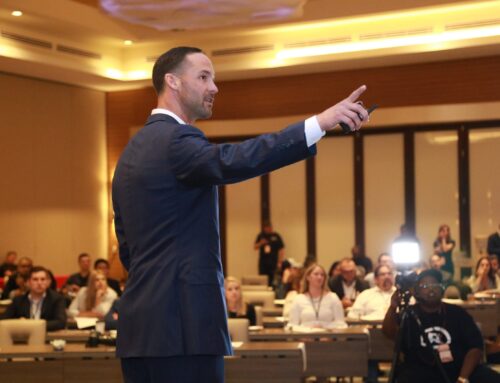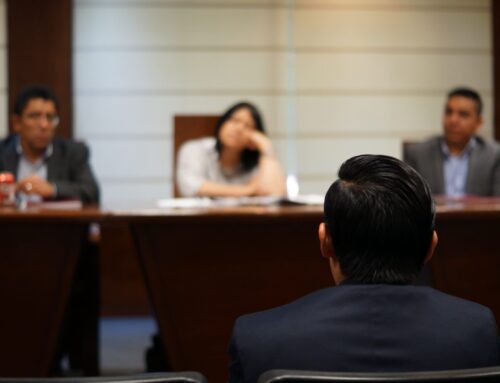What is Double Jeopardy?
Double jeopardy is the constitutional principle that prevents an individual from being prosecuted twice for the same offense. This principle is enshrined in the Fifth Amendment of the U.S. Constitution and has important implications for the criminal justice system. However, the double jeopardy rules can differ regarding active duty service members subject to the Uniform Code of Military Justice (UCMJ).
How it Works
The UCMJ is a federal law that establishes the military justice system and governs the conduct of military personnel. In some cases, service members tried and acquitted of a crime under civilian law may still be subject to prosecution under the UCMJ for the same conduct. Conversely, a service member tried and convicted under the UCMJ may not be prosecuted twice under civilian law for the same offense.
For example, suppose an active duty service member is accused of committing a crime off base that violates civilian and military law, such as assault. The service member may be tried and acquitted of the civilian charge but could still be subject to prosecution under the UCMJ. The reason is that the UCMJ is a separate and distinct legal system from civilian law, with its own rules and procedures.
In contrast, when service member is tried and convicted of an offense under the UCMJ, they are protected by the principle of double jeopardy if they are subsequently charged with the same crime under civilian law. This means that the individual cannot be tried twice for the same conduct, even if the UCMJ and civilian law overlap in terms of prohibited behavior.
Differences Between Military and Civilian Law
However, it’s important to remember some significant differences between the UCMJ and civilian law. For example, UCMJ proceedings are conducted by military tribunals and may have different evidentiary rules, procedural safeguards, and types of punishments than civilian courts. Additionally, UCMJ proceedings can have severe implications for the service member’s career and military service, including discharge, reduction in rank, and loss of benefits.
It’s Complicated
The implications of double jeopardy for active duty service members subject to the UCMJ can be complex and depend on many factors, including the nature of the offense, the jurisdiction involved, and the uniformed service member’s specific situation. These issues underscore the importance of obtaining experienced legal representation to navigate the complex legal system and protect the service member’s rights.
What to Do
If the active duty service member is arrested or charged with a crime in the civilian world, it is imperative that they immediately consult with counsel. If the service member is accused by a local authority close to the military installation, it is a good bet that the service member’s chain of command will be informed almost immediately, given the expected relationships between JAG offices and local authorities. Another critical difference between the civilian and military justice systems is that, under the UCMJ, it is ultimately the commander’s decision to bring a court-martial.
Active duty service members face unique circumstances if they are charged with a crime by civilian authorities. The process of facing criminal charges can be complicated and stressful, but taking the necessary steps can help protect the service member’s rights and preserve their future.
Legal Advice
The first thing an active duty service member should do if they are charged with a crime by a civilian authority is consult a defense attorney. In some cases, civilian and military authorities may have overlapping jurisdiction. A qualified defense attorney can advise the service member on the jurisdictional complexities of their case and ensure that their rights are protected.
Understanding the Potential Consequences
The next step is to understand the charges and the potential consequences of the charges. Depending on the nature of the crime, a service member could face significant penalties such as fines or incarceration, losing their military job, and other benefits. Understanding the charges and the potential consequences can help the service member prepare their defense.
How to Behave
Remaining cooperative with civilian authorities is also essential. While it’s crucial to maintain the right to remain silent and the right to legal representation, being cooperative with authorities can help reduce tensions and improve cooperation between the civilian authorities and the service member’s legal counsel. Also, maintain good communication and compliance with the military chain of command, as the incident may affect job performance and eligibility.
The Importance of Experienced Legal Counsel
It’s essential to have an experienced defense attorney who understands how criminal charges can affect a service member’s military career. A defense attorney can protect the service member’s rights and help them navigate the complexities of a military and civilian legal system.
Finally, service members should be prepared for a potentially long and arduous legal process. A civilian criminal case could take months or even years to resolve. However, a skilled defense attorney can help the service member navigate the legal process and fight for the best possible outcome.
In conclusion, service members facing criminal charges by the civilian authority must take the necessary steps to protect their rights and future. Consult with a qualified defense attorney, understand the charges, cooperate with civilian authorities, maintain good communication with the military chain of command, and be prepared for a lengthy legal process. Service members can give themselves the best chance for a positive outcome by taking these steps.





